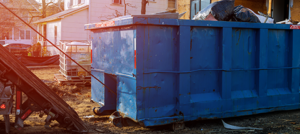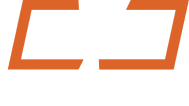Renting a roll-off dumpster is an excellent way to manage waste during large projects such as home renovations, cleanouts, or landscaping overhauls. However, without proper planning, your dumpster rental experience can become more stressful than it needs to be. By following a few simple tips, you can ensure a smooth and hassle-free process when working with Northwest Refuse Service. Here’s what you need to know for an efficient roll-off dumpster rental.
- Choose the Right Dumpster Size
Selecting the appropriate dumpster size is crucial for a successful rental experience. Dumpsters come in various sizes, typically ranging from 10 to 40 cubic yards, depending on the scale of your project. Opting for a dumpster that is too small may lead to overflows and the need for additional pickups, while a dumpster that’s too large could result in unnecessary costs.
- 10–15 yard dumpsters: Ideal for small renovations, garage cleanouts, or yard work.
- 20-yard dumpsters: Perfect for medium-sized projects like bathroom or kitchen remodels.
- 30–40 yard dumpsters: Best for large-scale renovations, major cleanouts, or new construction projects.
When in doubt, consult with Northwest Refuse Service. They can help you assess your needs and recommend the best size based on the type and volume of debris you’ll be generating.
- Understand the Rental Period
Before renting a roll-off dumpster, be sure to understand the rental period. Northwest Refuse Service offers flexible rental durations, which can be a big help if your project’s timeline is uncertain. However, keep in mind that extending the rental period may result in additional fees, so try to plan your project schedule accordingly.
To avoid paying for the extra time you don’t need, estimate how long your project will take and ask for clear guidelines on how long the dumpster can remain on your property before additional charges apply.
- Know What Can and Cannot Be Disposed Of
While roll-off dumpsters can handle a variety of materials, there are certain items that cannot be disposed of due to safety and environmental regulations. Most general construction and household debris are acceptable, but you should avoid throwing in the following:
- Hazardous materials (paint, chemicals, asbestos)
- Tires
- Electronics (TVs, computers)
- Appliances with refrigerants (air conditioners, refrigerators)
If you’re unsure about a specific item, ask Northwest Refuse Service for a list of prohibited materials before your project begins to avoid potential fines or delays.
- Choose the Best Dumpster Placement Location
The placement of your roll-off dumpster is an essential aspect to consider for convenience and accessibility. When deciding where to place the dumpster, consider factors such as ease of access, proximity to the project site, and any local regulations regarding dumpster placement. Make sure the spot you choose is:
- Flat and stable to avoid the risk of the dumpster rolling or shifting
- Easily accessible for the delivery truck and for your team to load materials
- Clear of obstacles like power lines, trees, or vehicles
Discuss placement options with Northwest Refuse Service to ensure a smooth drop-off and pickup.
- Avoid Overfilling the Dumpster
Overfilling your roll-off dumpster can lead to extra fees and logistical issues. Most dumpsters have a fill line, which indicates the maximum capacity allowed. Exceeding this limit could result in safety hazards during transportation, and the waste company may refuse to haul an overfilled dumpster.
To avoid overfilling:
- Break down large items to maximize space.
- Load bulky materials evenly, spreading them out rather than stacking them high.
- Be mindful of the weight limit, as some materials, such as concrete or soil, can quickly exceed the dumpster’s capacity even if the volume appears manageable.
- Schedule the Delivery and Pickup in Advance
To ensure your project runs smoothly, schedule the delivery and pickup of your roll-off dumpster in advance. Whether you need the dumpster for a few days or a couple of weeks, it’s always a good idea to have clear communication with Northwest Refuse Service about your timeline.
This will help ensure that the dumpster arrives at the beginning of your project and is picked up promptly once you’re done. If your project ends early or runs longer than expected, notify the company ahead of time to adjust the pickup schedule as needed.

- Prepare for Dumpster Delivery
On the day of delivery, make sure the chosen placement area is clear of obstacles like vehicles or debris. Remove any objects that might block access for the delivery truck, and confirm that the space is wide enough for the dumpster. For safety and ease of delivery:
- Mark off the area if necessary to prevent others from parking or placing items where the dumpster is scheduled to go.
- Inform neighbors if the dumpster will be placed near property lines or public roads to avoid any misunderstandings.
- Plan for Easy Access Throughout Your Project
During the course of your project, it’s essential to keep the area around the dumpster clear for easy access. If it’s blocked by parked cars, piles of debris, or other obstructions, you’ll lose valuable time and efficiency. Make sure everyone involved in the project knows where the dumpster is located and has clear access to it throughout the duration of the project.
- Check Local Regulations and Permits
Before placing a roll-off dumpster on your property or in a public area, it’s important to check with your local municipality about any regulations or permits required. In some areas, dumpsters placed on public streets may need special permits to avoid fines. Northwest Refuse Service can assist in understanding these regulations and help you obtain the necessary permits, if applicable.
- Communicate Regularly with Northwest Refuse Service
Clear and open communication is the key to a smooth roll-off dumpster rental services experience. Whether you have questions about size, weight limits, or scheduling, keeping in touch with Northwest Refuse Service will ensure that all details are covered. Their customer service team is available to guide you through the process, offering personalized recommendations and addressing any concerns.
Renting a roll-off dumpster rental for your next project doesn’t have to be a hassle. By choosing the right size, planning your placement, and maintaining regular communication with Northwest Refuse Service, you can enjoy a seamless rental experience. These tips will help ensure your waste disposal process is efficient, safe, and cost-effective, allowing you to focus on the success of your project.

